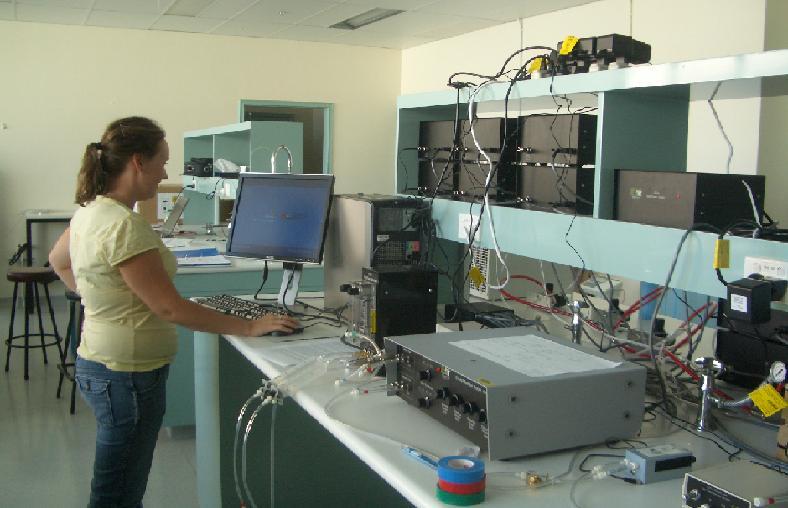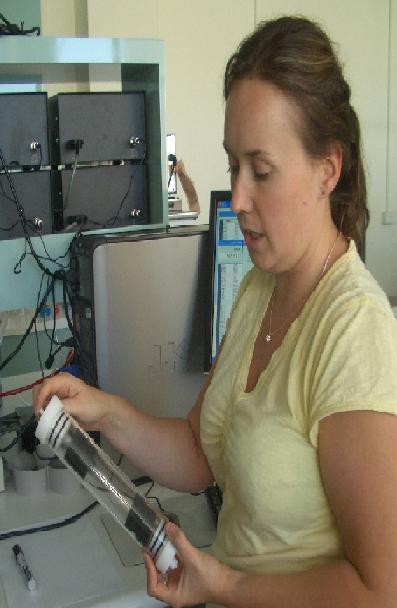| |
|
|
|
The
Burning question:
How will Australian native shrubs
contribute to leaf litter loads in the future?
By
Sarah Wood
Tackling
this question is PhD student Meaghan Jenkins from the University
of NSW. On the 12th of April at 2:45pm, she took time out
from setting up her experiment to talk to me about starting
her research project.
Meaghan is currently in the phase of setting up an experiment
to measure carbon
cycling in nine different Australian alpine shrub species.
She has already spent time in the field in both the Snowy
Mountains and High plains in Victoria and at Falls Creek.
The highlight of Meaghan’s day in science was setting up new
method of running a Respirometer machine for her project and
having it work! A Respirometer
should not be confused with a Respirator
that humans might use when they are having trouble breathing.
In the field of plant ecosystem science, a Respirometer machine
passes air through a chamber over a cutting from the plant
in order to test the concentrations of carbon dioxide and
oxygen after they pass over the specimen.
The result Meaghan gets from this experiment tells her how
much respiration the plants are undergoing and thus how much
they are growing. Until now, the chambers used to hold specimens
in the respirator had only been used to measure plant cuttings
in this area of research. However, Meaghan has developed a
way for the respiration of soil – caused by microbes in the
soil -- to be measured by developing an adapted chamber system
that involves placing the soil between two pieces of round
foam -- the type found in audio speakers.
“The system I have devised allows air to pass through
the foam but does not allow any soil to move around the chamber
and become caught in the machine's delicate measuring equipment,”
says Meaghan.
The process of setting up and developing new methodology for
her experiments is exciting. Meaghan also likes add to the
knowledge in her field of research and giving other scientists
more tools with which to study plants and their ecosystems.
Meaghan’s research is important in the Australian Alpine environment
for determining the intensity of fires in the future for this
region. Alpine shrubs and their leaf
litter are very flammable because of volatile
compounds within their leaves. If the growth of these
shrubs is determined using the respirometer, then the amount
of litter they drop on the alpine slopes can be calculated.
From this figure, it is possible to gauge the intensity of
fires that could follow long dry seasons, where these shrubs
drop most of their leaves on to the forest floor.

Meaghan setting up the Respirometer machine for her experiment.

Meaghan explains how her new chamber system works.

The new chamber system that Meaghan has designed to measure
the respiration of soil. A World First!!
|
|
|
|